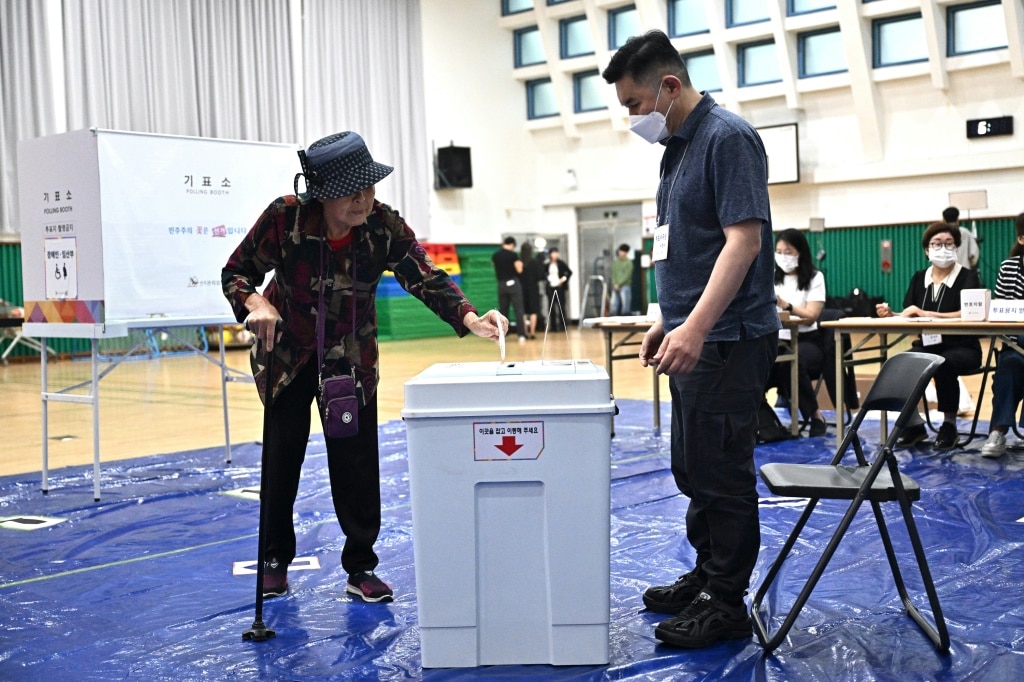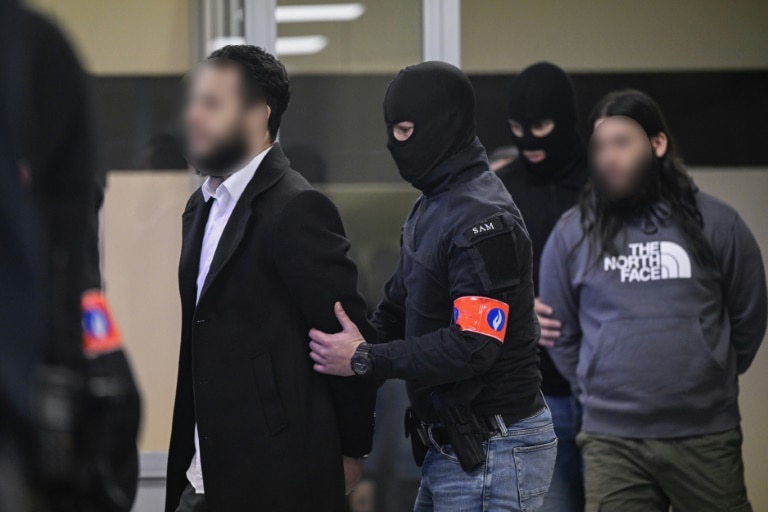South Korea's centre-left leader Lee wins presidency
South Korea's centre-left leader Lee wins presidency

South Korea's centre-left leader Lee Jae-myung hailed voters' "great decision" as he was declared the winner of a snap presidential election early Wednesday, capping months of political chaos.
Six months to the day after ex-president Yoon Suk Yeol plunged the country into crisis with his disastrous declaration of martial law, official results from the National Election Commission showed Lee had defeated conservative rival Kim Moon-soo, who had earlier conceded the race.
Voter turnout was the highest in nearly three decades.
"I will humbly accept the choice of the people. Congratulations to the elected candidate Lee Jae-myung," Kim said as the last ballots were still being counted.
Lee had earlier thanked voters for placing their trust in him, saying he would do his "utmost to fulfil the great responsibility and mission entrusted to me, so as not to disappoint the expectations of our people."
In a nod to South Korea's growing partisan divide, exacerbated by the chaos after Yoon's martial law bid, Lee said those that did not support him remained "fellow citizens" and promised to "move forward with hope and make a fresh start from this moment on".
He also promised to "pursue dialogue, communication, and cooperation" between Seoul and its arch-enemy Pyongyang, with which relations plunged to their lowest level in years under Yoon's hawkish approach.
- 'Relieved' -
Lee will take office almost immediately, as soon as the commission validates the tally, likely early Wednesday.
With 96.74 percent of the total ballots counted overnight it was mathematically impossible for Kim to catch him, the official figures showed.
Lee will face a bulging in-tray, including global trade vicissitudes chafing the export-driven economy, some of the world's lowest birth rates and an emboldened North Korea rapidly expanding its arsenal.
Voter turnout was 79.4 percent -- the highest since 1997.
An exit poll by the three major broadcasters had earlier projected a victory for Lee, prompting his supporters to break into cheers outside the National Assembly, as party officials watching from inside the parliament started a chant of "Lee Jae-myung".
For weeks, major polls had put Lee well ahead of Kim -- Yoon's labour minister -- who struggled with party infighting and failed to convince a third party candidate to unify and avoid splitting the right-wing vote.
After months of turmoil and a revolving door of lame-duck acting leaders, many South Koreans said they were eager for the country to move forward.
Noh Min-young, 20, who has been protesting in the streets since Yoon declared martial law, told AFP she was "relieved".
"It's been a tough road. I'm happy because it feels like we've seized the opportunity that so many people fought for over the past six months."
- 'Turning point' -
The fallout from Yoon's martial law declaration, which has left South Korea effectively leaderless for the first months of US President Donald Trump's tumultuous second term, was the decisive factor in the election, experts said.
The vote was "largely viewed as a referendum on the previous administration," Kang Joo-hyun, a political science professor at Sookmyung Women's University, told AFP.
Yoon's impeachment over his martial law bid, which saw armed soldiers deployed to parliament, made him the second straight conservative president to be stripped of office after Park Geun-hye in 2017.
"Lee's victory signals that the Korean public rejects illiberal and undemocratic measures such as martial law," Gi-Wook Shin, a sociology professor at Stanford University, told AFP.
"This moment will likely be remembered as a peculiar and consequential turning point in South Korea's political history."
But Lee's success is due as much to his rivals' failings as his own strengths, said Minseon Ku, a postdoctoral researcher at the William & Mary Global Research Institute.
"Lee has a criminal record and was involved in several political and personal scandals," Ku said.
His rise to the presidency is "a reflection of the deep political turmoil South Korea has been experiencing".
South Korean presidents serve a single five-year term.
Police issued the highest level of alert and deployed thousands of officers to ensure the election plus the upcoming inauguration Wednesday proceed smoothly.
Lee -- who survived an assassination attempt last year -- has been campaigning in a bullet-proof vest and delivering speeches behind a glass protective shield.
bur-oho/st/



